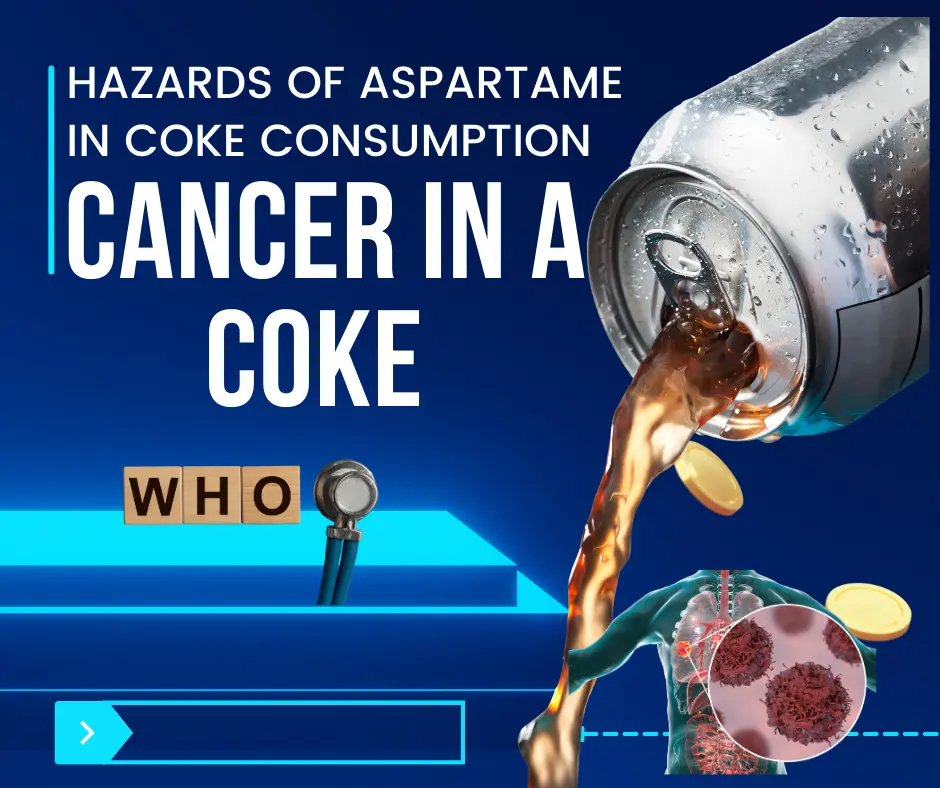Introduction
In a potentially significant development, the World Health Organization’s International Agency for Research on Cancer (IARC) is expected to declare aspartame. One of the most commonly used artificial sweeteners, as a “possible carcinogen” on July 14. The classification follows years of conflicting research on the safety of aspartame, which is widely used in low-calorie food and drinks such as Diet Coke and Diet Pepsi.
This article explores the impending classification and highlights recent studies linking high aspartame consumption to an increased risk of cancer and other health concerns.
Aspartame and Its Widespread Use:
Aspartame is a popular artificial sweetener due to its intense sweetness, being approximately 200 times sweeter than regular sugar. It is extensively used in zero-sugar and low-sugar products, including sugar-free Jell-O, tabletop sweeteners like Neutral sweet and Equal, Trident’s sugar-free gum, and Crystal Light. Despite its widespread use, concerns have persisted regarding its potential health risks, leading to the upcoming IARC classification.
Aspartame Link to Cancer Risk:
Recent studies have raised alarms about the potential link between high aspartame consumption and increased cancer risk. A 2022 study published in PLOS Medicine found an association between consuming large quantities of aspartame and an elevated risk of developing breast and obesity-related cancers. This finding has added to the growing body of evidence suggesting a possible carcinogenic effect of aspartame.
Impact on Bone Health:
The high phosphoric acid content in Coke can lead to increased urinary calcium excretion, potentially weakening bones over time. This is particularly concerning for individuals at risk of osteoporosis or those with compromised bone health. Weakening bones not only increase the risk of fractures but also pose challenges for cancer patients who require strong skeletal structures to withstand rigorous treatments.
Other Health Concerns:
Beyond its potential link to cancer, another study published in December 2022 highlighted the sweetener’s association with anxiety in mice, with the effect observed in subsequent generations. These findings contribute to the ongoing discussion surrounding the safety of aspartame and its potential impact on human health.
Regulatory Approvals and Industry Stance:
Aspartame received approval from the Food and Drug Administration (FDA) as a tabletop sweetener and dry base for certain foods, including drinks, gelatins, dairy products, and puddings, in 1974. In 1996 It approved as a general sweetener. In response to the expected IARC classification, the American Beverage, representing companies like the Coca-Cola Co. and PepsiCo, has reiterated its belief in the safety of aspartame. They point to ongoing support from multiple food safety agencies, including the FDA, while dismissing IARC’s significance as a food safety agency.
Conclusion:
The upcoming classification of aspartame as a “possible carcinogen” by the World Health Organization’s IARC highlights the ongoing debate and concerns surrounding this widely used artificial sweetener. The connection between high aspartame consumption and an increased risk of cancer, as well as other health concerns, has raised questions about its long-term safety. As further research and regulatory decisions unfold, individuals may consider moderation and alternative sweeteners to minimize potential risks. Prioritizing a balanced and diverse diet remains crucial for overall health and well-being.



